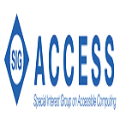Internet resources form the basic fabric of the digital society. They provide the fundamental platform for digital services and assets, e.g., for critical infrastructures, financial services, government. Whoever controls that fabric effectively controls the digital society. In this work we demonstrate that the current practices of Internet resources management, of IP addresses, domains, certificates and virtual platforms are insecure. Over long periods of time adversaries can maintain control over Internet resources which they do not own and perform stealthy manipulations, leading to devastating attacks. We show that network adversaries can take over and manipulate at least 68% of the assigned IPv4 address space as well as 31% of the top Alexa domains. We demonstrate such attacks by hijacking the accounts associated with the digital resources. For hijacking the accounts we launch off-path DNS cache poisoning attacks, to redirect the password recovery link to the adversarial hosts. We then demonstrate that the adversaries can manipulate the resources associated with these accounts. We find all the tested providers vulnerable to our attacks. We recommend mitigations for blocking the attacks that we present in this work. Nevertheless, the countermeasures cannot solve the fundamental problem - the management of the Internet resources should be revised to ensure that applying transactions cannot be done so easily and stealthily as is currently possible.
翻译:互联网资源构成数字社会的基本结构。 它们提供了数字服务和资产的基本平台, 例如关键基础设施、金融服务、政府等。 谁控制了数字社会,谁能有效控制数字社会。 在这项工作中,我们证明互联网资源管理、IP地址、域名、证书和虚拟平台的现行做法不安全。 长期以来,对手可以控制他们并不拥有的互联网资源,并进行隐形操纵,导致毁灭性袭击。 我们表明网络对手可以接管和操纵至少68%的指定IPv4地址空间以及31%的顶层亚历山大域域。 我们通过劫持与数字资源有关的账户来证明这种攻击。 劫持账户时,我们发射离路 DNS 缓冲中毒袭击,将密码恢复链接转向对立主机。 然后我们证明对手可以操纵与这些账户相关的资源。 我们发现所有被测试的提供者都容易受到袭击。 我们建议减轻我们阻碍在这项工作中进行攻击的力度。 然而, 应对措施无法解决根本问题。 我们应对互联网资源的管理进行修改,以确保目前无法轻易地进行交易。









